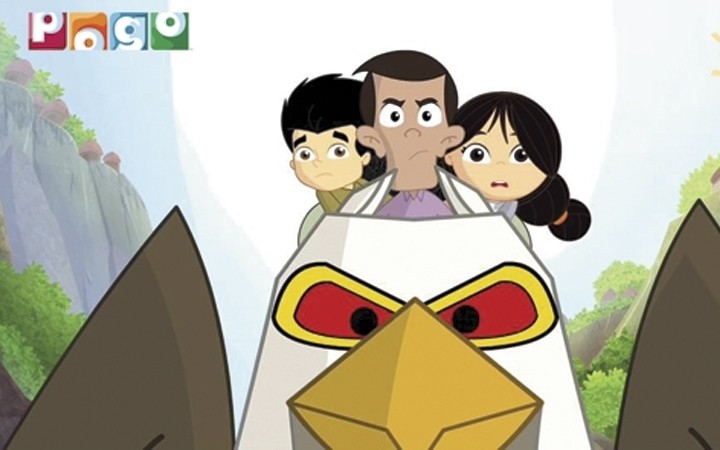
Two regions in particular, Asia-Pacific and Latin America, loom large on the radar for Gerhard Zeiler, president of Turner Broadcasting System International.
Both parts of the world represent the biggest growth opportunities for Turner’s non-US channels business, charged with delivering US$1 billion in operating profit in 2014 by Jeff Bewkes, chairman and CEO of Turner parent Time Warner, up from an estimated US$690 million in 2012.
While Turner has grown by leaps and bounds in Latin America, doubling its scale in recent years to forge a strong foundation for growth across pay and free TV, the track record in Asia, where the company is best known for its CNN and Cartoon Network brands, has been more mixed.
“We have a lot to do in Asia-Pacific,” says Zeiler, former CEO of European entertainment network RTL, who joined Turner earlier this year.
“Here, we are strong in news, we are strong in kids. We are not so strong in general entertainment,” he adds, speaking in an interview with Media Business Asia.
“That’s where we have to work, and our work is cut out. That’s where we will focus, to be one of the top three international media companies.”
Asia has its own particular challenge compared to Latin America, due to a lower penetration of multichannel TV combined with extensive regulatory controls on investment by overseas media owners.
Nonetheless, Turner’s Asian revenues are overshadowed by international rivals such as News Corp and Sony who have staked out leading positions in Hindi general entertainment, a key cornerstone of Asian revenue where Turner has tried with two separate bids, helping launch one GE channel and then taking over another, but stumbling both times.
Fresh opportunities in India are opening up as millions of homes receiving cable TV, the main platform for TV viewing in India, are upgraded to digital systems, making space for a greater variety of channels while helping plug rampant piracy that thrived on hard-to-monitor analog networks.
Zeiler wants to make sure future endeavors don’t flop for want of funds or planning.
“We are part of one of the big global operating media companies,” he says.
“We have to think big when it comes to Asia-Pacific in the future.”
In terms of geography, Turner is ready to place big bets anywhere in the world, either as a standalone investor or in conjunction with a partner.
Market conditions will likely determine when investments are made, Zeiler explains, highlighting immediate potential in Brazil and India, while labeling others such as Indonesia, where pay-TV is still building traction off a low base, as more of a future play.
“We have the resources to do this everywhere, if the opportunity is there,” he says.
Zeiler’s first priority however is diversifying Turner’s Asian channel portfolio by building reach and scale in general entertainment.
One near-term goal is to import Turner’s drama network TNT into as many markets as possible, supported over time by local production.
A stronger entertainment offering, leveraging libraries to secure early window content, would present a more attractive package to operators, delivering a boost to affiliate rates.
At the same time, such a move would widen Turner’s access to Asia’s booming ad markets, with regional news and kids channels a relatively tough sell to brands.
“You can be sure that in three to five years Turner will also be a strong force in general entertainment,” Zeiler declares.
He is also eyeing investments in free-to-air, an avenue Turner successfully pursued in Latin America, but regulatory obstacles will likely nudge the broadcaster towards pay-TV in Asia for the time being.
Large-scale entry strategies should seek the security of a berth in the top tier, though smaller thematic launches are another option, such as two recently launched kids channels, Toonami and Cartoonito.
Zeiler also highlights opportunities for further localization in Asia, building on market-specific channels for CNN in Japan and India, local editions of Cartoon Network and Indian offering Pogo in the kids space as well as specialist channels in Japan (Mondo and Tabi) and Korea (QTV).
Problems arise when companies invest heavily to secure a mid-tier position, Zeiler remarks.
“As in many industries, a middle position is never good,” he explains.
“You’re either very small and very flexible, with not many overhead costs, or you are big and have the leverage of scale.”

As a leading independent consulting and research provider focused on Asia media & telecoms, MPA offers a range of customized services to help drive business development, strategy & planning, M&A, new products & services and research. Based in Hong Kong, Singapore and India, MPA teams offer in-depth research reports across key industry sectors, customized consulting services, industry events to spread knowledge and unlock partnerships, and publications that provide insights into media & telecoms.
All Media Partners Asia articles >Thank you for submission
Once you activate the account, your subscription entitles to receive 3 months of complimentary access to ‘The Digest’, MPA’s monthly email analysis,updates across TMT with exclusive industry interviews and data.